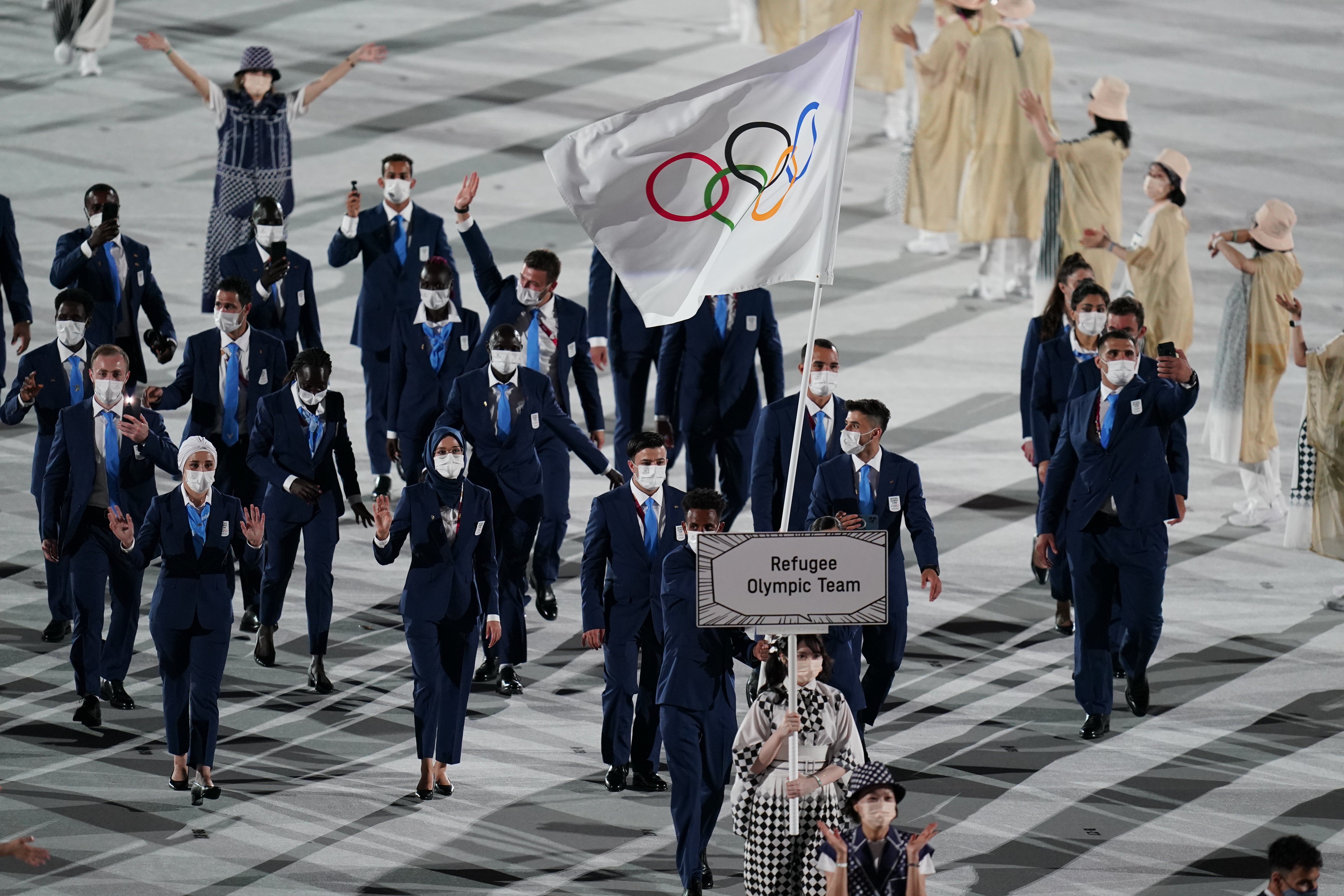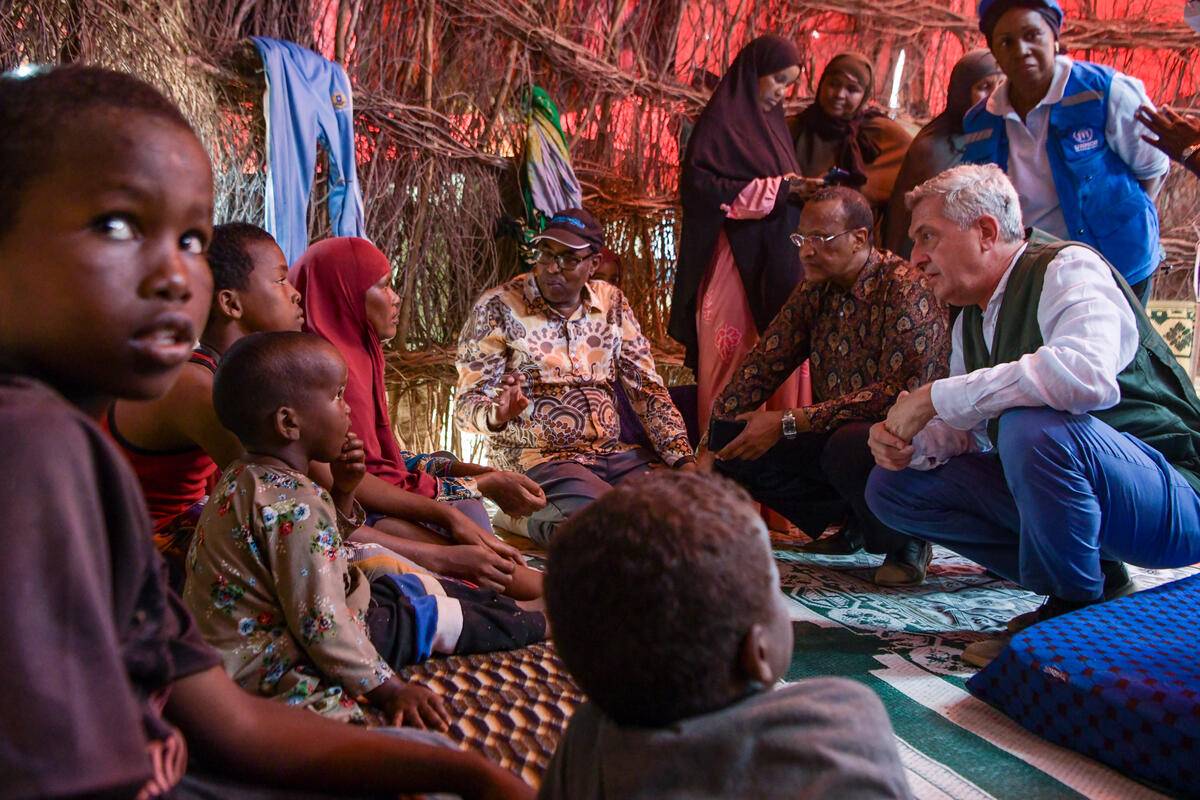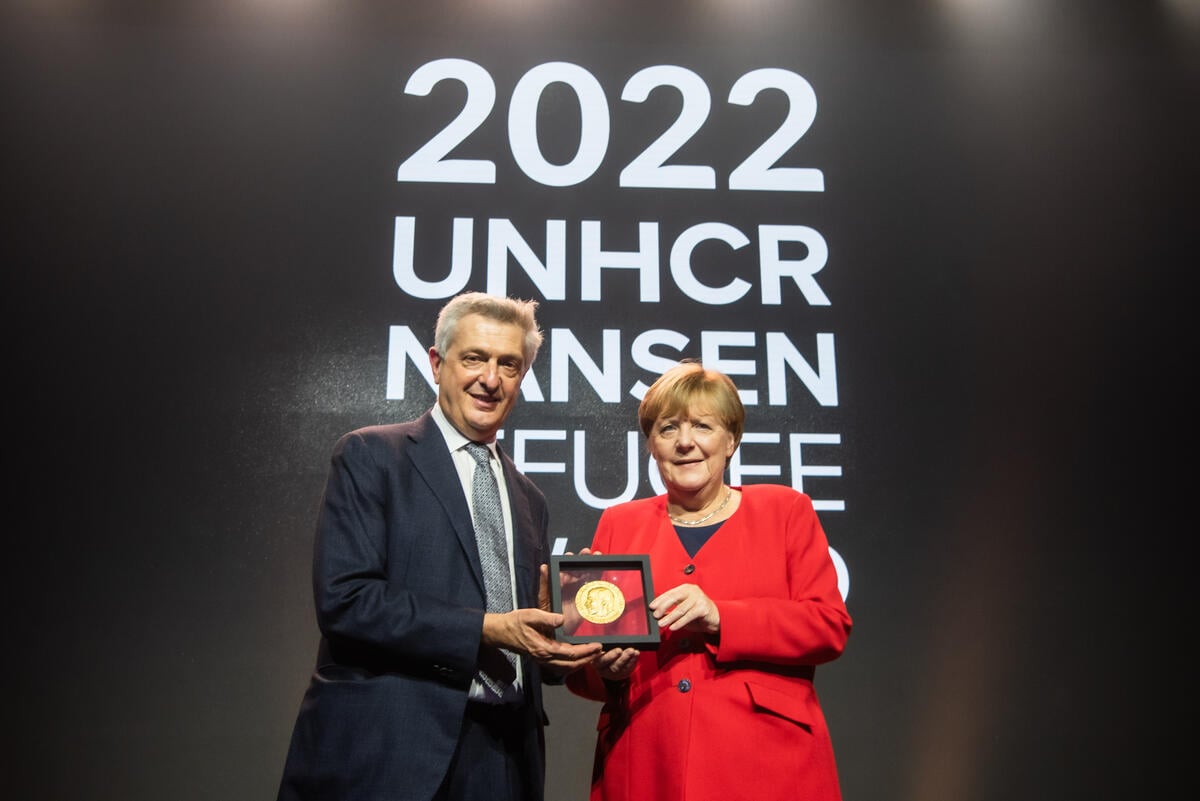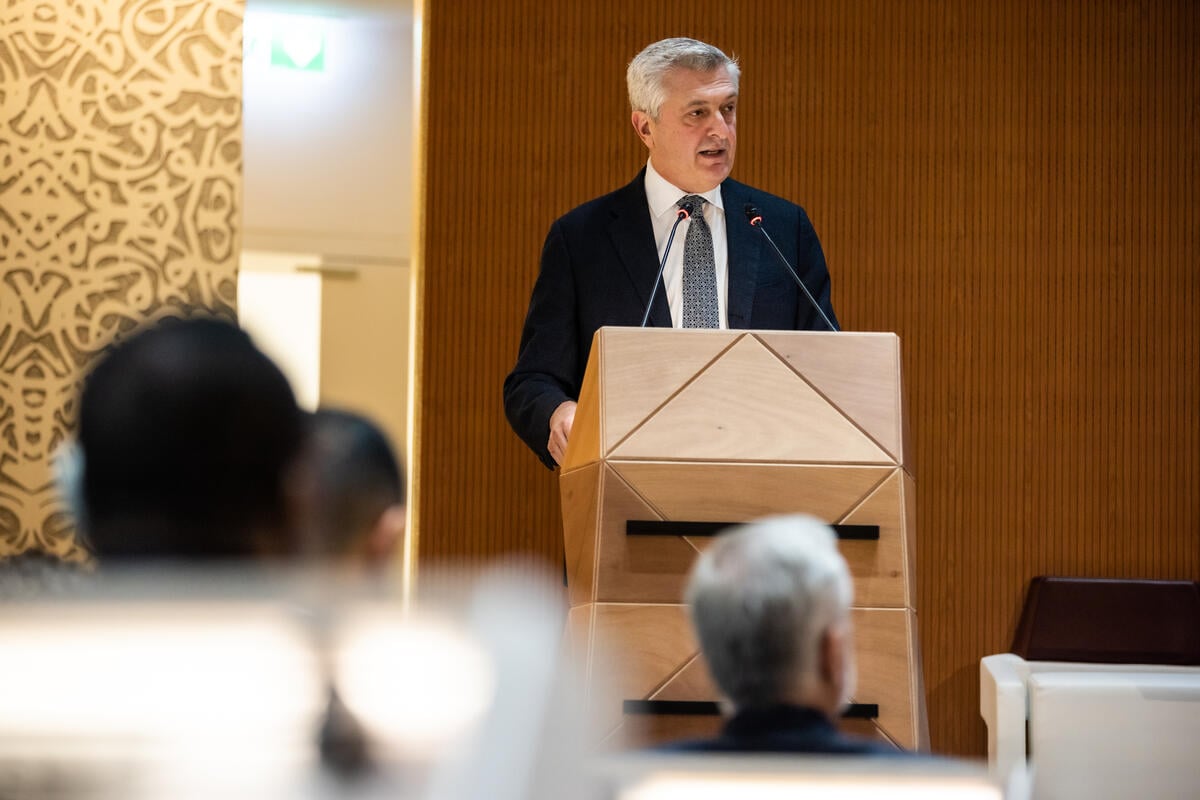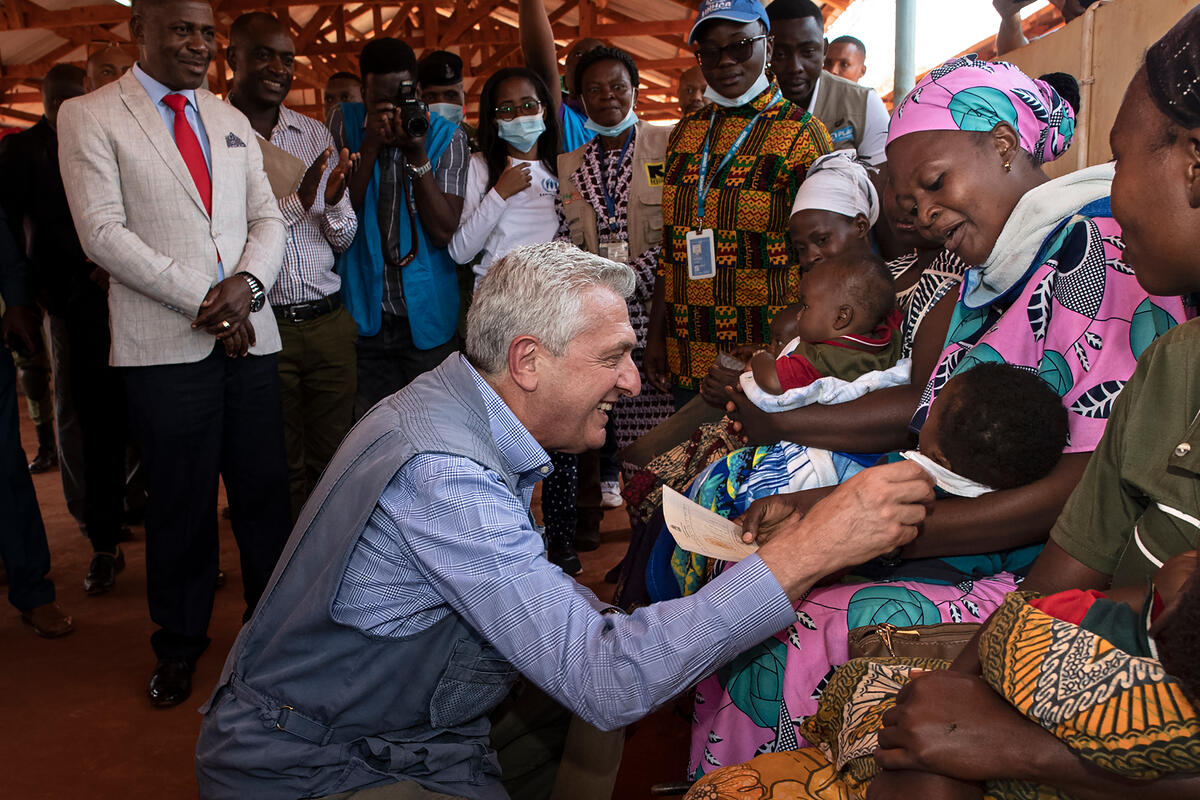UNHCR chief praises 'life and death' decisions taken by aid workers
UNHCR chief praises 'life and death' decisions taken by aid workers

GENEVA – The UN High Commissioner for Refugees Filippo Grandi today paid tribute to the courageous humanitarian workers who risk their lives to protect those most vulnerable around the world, and the “difficult decisions” they have to take in dangerous situations. “Every time it is a judgment call between life and death,” Grandi stressed.
In an address to UNHCR staff in Geneva to mark World Humanitarian Day, Grandi underlined the UN Refugee Agency’s commitment to “strongly support the collective effort of humanitarian organizations and the United Nations to protect staff working in dangerous places.”
In 2017, a total of 179 aid workers were reportedly killed, with the highest number of deaths occurring in South Sudan, Syria, the Central African Republic, Nigeria and Bangladesh. Over 300 more were the target of attacks, rapes or abductions.
“While I am relieved to report that no UNHCR personnel lost their lives in carrying out their duties, I remain concerned by the high number of security incidents affecting UNHCR colleagues,” Grandi highlighted.
"I remain concerned by the high number of security incidents affecting UNHCR colleagues.”
Over 400 security incidents were registered by UNHCR staff in 2017.
“The environment continues to be very challenging,” Grandi said. “But the impact of these risks is mitigated by the awareness that has grown among colleagues and the security measures that are put in place to protect staff.”
The High Commissioner praised the work of UNHCR’s security unit, established 25 years ago, and managers.
The work of humanitarians is more vital than ever — 2017 saw the number of children, women and men displaced worldwide by persecution, conflict and violence at an all-time high of 68.5 million.
South Sudan bore the brunt of deadly attacks and reached a new high in 2017, with 28 humanitarian workers killed.
Additionally, more than 300 humanitarians were injured or kidnapped while performing their jobs in high-risk contexts. Grandi expressed concern about the rising number of kidnappings — 141 aid workers were kidnapped in 20 countries, with the highest number occurring in the Democratic Republic of the Congo, South Sudan and Somalia.
The High Commissioner also pointed at recent attacks and looting of humanitarian compounds and assets, and the serious consequences they have on UNHCR and other humanitarian organizations’ work, forcing them “to extract personnel and reduce their footprint given the extensive damage and further threats.”
“The threats which staff in high-risk locations must endure are not only because of terrorism or armed conflict but also as a result of political unrest and disgruntled local populations,” Grandi added. “And those who pay the greatest price under these circumstances are the people we serve.”
"Think of those for whom insecurity is not an episode in their lives, but the main feature of their lives.”
World Humanitarian Day is marked on August 19, which this year falls on a Sunday. It was established in 2008 by the United Nations General Assembly to honour the 22 aid workers who lost their lives in the bombing of the UN Headquarters in Baghdad 15 years ago. Among the fatal victims was a former senior UNHCR official, Sergio Vieira de Mello.
This year’s UN campaign for World Humanitarian Day is on the theme of #NotATarget. It calls for better protection of civilians, humanitarians and health workers by urging global leaders to do a better job of protecting civilians in conflict zones.
The High Commissioner’s address was followed by a minute of silence at the UN Refugee Agency’s headquarters in Geneva, and the placing of a floral wreath at the staff memorial to honor the humanitarians who lost their lives while helping others in need.
In his closing remarks, Grandi invited staff to think of “those for whom insecurity is not an episode in their lives, but the main feature of their lives.”



